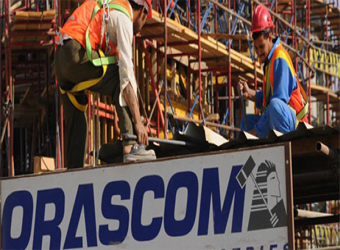Orascom Construction Industries (OCIC.CA) said on Thursday it seeks $25 million more in tax credits for its $1.8 billion fertilizer project in southeast Iowa, a move that would push total credits for the project up to $82.5 million, state documents show.
The Iowa Economic Development Authority Board will consider the request today at its monthly meeting.
“These people don’t know when to stop,” said Sen. Joe Bolkcom, an Iowa City Democrat, who has described the project as the worst economic-development deal in the state’s history. “Shame on Gov. Branstad for letting them continue to raid the state treasury.”
Orascom, the global corporation formerly located in Egypt, is now called OCI NV and is based in the Netherlands. It’s building a fertilizer project near Wever in Lee County, an area that consistently has had one of the highest unemployment rates in the state.
State leaders warned last fall the company could come back to claim $25 million in tax credits annually over two years unless lawmakers pass corporate income tax reform. Lawmakers passed corporate property tax reforms last session but did not pass corporate income tax changes.
The state was limited at the time from awarding the full amount by a $120 million cap on tax credits.
Debi Durham, the state’s economic development director, backs the company’s request for additional tax credits, despite public criticism.
She said Orascom’s Iowa Fertilizer Co. could have sought more incentives than the state is offering, based on capital investment, research and development, and other incentive programs. “They’re delivering on what they said they would deliver — and more,” she said.
Durham said Orascom has already increased by $400 million its plans for investment — and is expected to add more than the 165 jobs that have already been committed to the state. She was unable to say how many more jobs could be added.
“We’re doing what we intended to do, and they’re doing everything they said they would do,” she said, adding that projects in economically distressed areas require greater incentives.
Orascom already has received a $1.61 million loan and forgivable loan for the project, plus access through the state to a federal tax-exempt bond program to finance the project. The project also received a nearly $2 million state transportation grant and about $1.8 million in assistance for job training.
Local governments are expected to forgo an estimated $133 million in property taxes.
Add in the $300 million that Orascom is estimated to save using the tax-exempt bond program and Bolkcom said state and local incentives climb pretty quickly to $500 million. “We’ve got a lot of money on the table, and I hope the authority board has the sense to say ‘no,’ ” he said.
“We’ve already spent more on this deal than could possibly be defended,” said Peter Fisher, research director of Iowa Policy Project, a nonprofit group based in Iowa City. “The Orascom demands are unseemly.”
David Bernstein of Sioux City, the authority board’s chairman, declined to comment Thursday on the project since the board has not discussed it.
Bolkcom questioned whether it is legal for the board to provide added incentives with no new jobs added to the project. “If they want additional support, we should get additional jobs,” he said. “It appears to be special treatment for the richest family in Egypt.
“If this is the kind of deals that the governor’s foreign travel will produce, he might think about staying home and helping Iowa-based businesses grow,” Bolkcom said.
Gov. Terry Branstad announced Thursday he will lead a trade mission to India in September. He just returned from a 10-day trip to four European countries.
In September, the state agreed to boost incentives to the project, agreeing to give the company $26 million more in tax credits to keep the project in Iowa. Branstad said at the time the state was competing with Illinois for the project, a statement that’s been hotly debated.
Durham points to a state report that shows Iowa revenues growing by nearly $154 million over the next 10 years. Employment increases include about 2,000 construction jobs added annually in the first two years and 1,000 in the third year. That report does not include the proposed incentives.
Source: Des Moines Register
